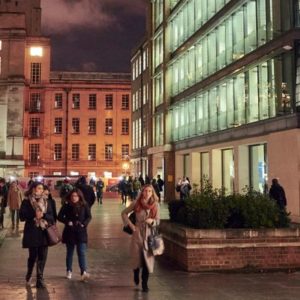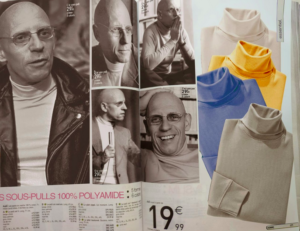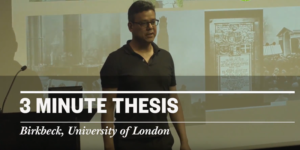Ableism in Academia: The Break-Out Session
Friday 23rd March 10am – 5pm
On Friday 23rd March, UCL Institution of Education is hosting the event Ableism in Academia. Due to popular demand, this event is now full. Since interest was so great, an alternative, break-out session is now being offered at Birkbeck where the live presentations will be viewed on the big screen, enabling discussion and interaction.
Venue: Birkbeck, University of London
Bookings: To confirm your place at the break-out session, please visit this link
Programme
10.00 – 10.40: Keynote:
- Fiona KUMARI-CAMPBELL Policy and legal responses to social inclusion
10.40 – 11.00: Invited speaker:
- Nicki MARTIN The Leadership Foundation for Higher Education research
11.00 – 11.10: Comfort break
11.10 – 12.20: Accepted submissions:
- Wendy MERCHANT – Excellence, Rigor and Resilience
- Rosalind JANSSEN – Living with microscopic colitis
- Gillian LOOMES – The questioning aspie
- Ian GENT – Depressed academics
- Carla FINESILVER – Invisible disability, unacknowledged diversity
12.20 – 1.30: Lunch break
1.30 – 3.00: Accepted submissions:
- Thomas KADOR – Academics who can’t read (remote)
- Ben LUNN – Ableism in Music Academicism (remote)
- Jeanne BARCZEWSKA – Teaching voice (remote?)
- Oliver DADDOW – Colour blindness and accessibility in academia
- Jennifer RODE – Greyhound racing and the academy
- Elisabeth GRIFFITHS – Invisible disabilities, disclosure and being an ‘insider’ in disability research
- Jason DAVIES – Disabling grief in academia
3.00 – 3.20: Comfort break
3.20 – 4.30: Workshop
- Facilitated by Mike Higgins, Equality Diversity & Inclusion Manager at UCL.
4.30: Closing words
- Prof Michael ARTHUR, President and Provost of UCL
Unfortunately, catering will not be provided but attendees are welcome to bring along their own refreshments or come and go throughout the day.
Background information
Academia prides itself on productivity, innovation and rigour. It also purports to promote inclusivity and diversity.
However, as disabled, chronically ill, and neurodiverse academics know, ableism – discrimination in favour of able-bodied people – is endemic in academia. Rather than embracing difference as a reflection of wider society, academic ecosystems seek to normalise and homogenise particular ways of working and of being a scholar.
Against this background, this interactive symposium provides a forum to discuss the pressures and challenges faced by disabled, chronically ill, and neurodiverse academics. By engaging in debate around academic ableism, including how it intersects with gender, race, class, age, and sexuality, we aim to create a policy-facing manifesto that will challenge academia’s existing notions of able-bodied perfection and provide impetus for change.
Event aims
- To be pioneering regarding inclusivity and accessibility
- To allow for debates and discussions
- To use personal experiences and theorisation for the creation of a manifesto for universities to use.
Contact details
For further information about the break-out session, please contact Sarah Sherman s.sherman@bloomsbury.ac.uk
For further information about the main event, please contact Nicole Brown nicole.brown@ucl.ac.uk





